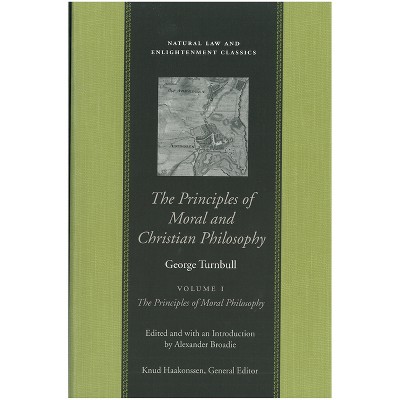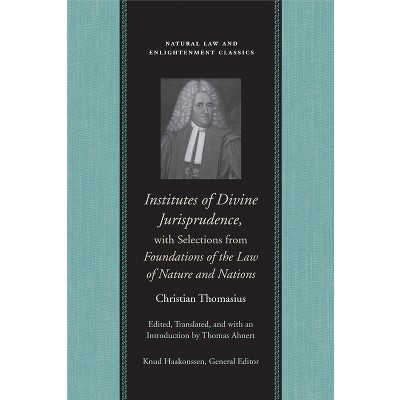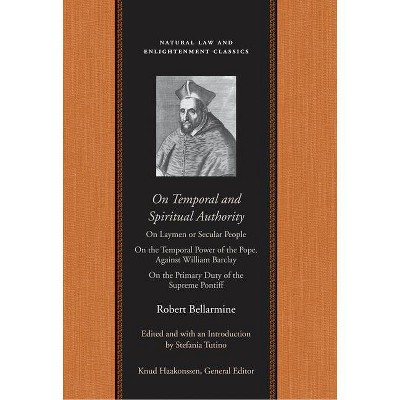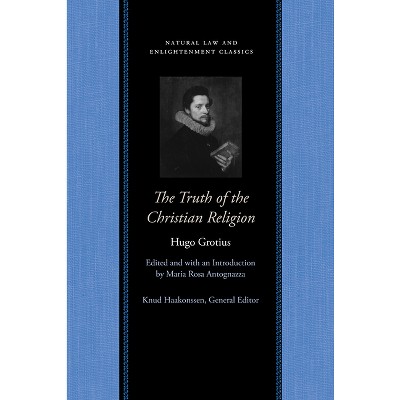Sponsored

Principles of Equity - (Natural Law and Enlightenment Classics) by Henry Home Lord Kames (Hardcover)
In Stock
Sponsored
About this item
Highlights
- Henry Home, Lord Kames, was the complete "Enlightenment man," concerned with the full spectrum of human knowledge and its social use.
- Author(s): Henry Home Lord Kames
- 680 Pages
- Philosophy, History & Surveys
- Series Name: Natural Law and Enlightenment Classics
Description
About the Book
"Henry Home, Lord Kames, was the complete "Enlightenment man," concerned with the full spectrum of human knowledge and its social use. However, as a lawyer and, after 1752, as a judge on the Court of Session in Edinburgh, he made many of his most distinctive contributions through his works on the nature of law and legal development. Principles of Equity, first published in 1760, is considered his most lasting contribution to jurisprudence and is still cited. In his jurisprudence, Kames specifically sought to explain the distinction between the nature of equity and common law and to address related questions, such as whether equity should be bound by rules and whether there should be separate courts of law and equity. Beginning with a general introduction on the rise and nature of equity, Principles of Equity is divided into three books. The first two, "theoretical," books examine the powers of a court of equity as derived from justice and from utility, the two great principles Kames felt governed equity. The third book aims to be more practical, showing the application of these powers to several subjects, such as bankrupts. Principles of Equity is significant as an example of the approach of an Enlightenment thinker to practical legal questions and as an early attempt to reduce law to principles. There is evidence that this book was well known in the formative years of the United States and that both Benjamin Franklin and Thomas Jefferson were familiar with Kames's treatise. Henry Home, Lord Kames (1696-1782), one of the leaders of the Scottish Enlightenment, was a judge in the supreme courts of Scotland and wrote extensively on morals, religion, education, aesthetics, history, political economy, and law, including natural law. His most distinctive contribution came through his works on the nature of law, where he sought to combine a philosophical approach with an empirical history of legal evolution.Michael Lobban is Professor of Legal History at Queen Mary, University of London. Knud Haakonssen is Professor of Intellectual History and Director of the Centre for Intellectual History at the University of Sussex, England"--Book Synopsis
Henry Home, Lord Kames, was the complete "Enlightenment man," concerned with the full spectrum of human knowledge and its social use. However, as a lawyer and, after 1752, as a judge on the Court of Session in Edinburgh, he made many of his most distinctive contributions through his works on the nature of law and legal development.
Principles of Equity, first published in 1760, is considered his most lasting contribution to jurisprudence and is still cited. In his jurisprudence, Kames specifically sought to explain the distinction between the nature of equity and common law and to address related questions, such as whether equity should be bound by rules and whether there should be separate courts of law and equity.
Beginning with a general introduction on the rise and nature of equity, Principles of Equity is divided into three books. The first two, "theoretical," books examine the powers of a court of equity as derived from justice and from utility, the two great principles Kames felt governed equity. The third book aims to be more practical, showing the application of these powers to several subjects, such as bankrupts. Kames drew his illustrations of the principles of equity from the case law of the Court of Session as well as the English Chancery, both because he felt that the rules of equity must be the same in every country where law was cultivated, and because he hoped his work might promote a closer union between the law of the two kingdoms. Principles of Equityis significant as an example of the approach of an Enlightenment thinker to practical legal questions and as an early attempt to reduce law to principles. Kames himself saw this as his most important work, and scholars both of his theory and of the broader Scottish Enlightenment will find it gives essential insights into the thought of this central figure. There is evidence that this book was well known in the formative years of the United States and that both Benjamin Franklin and Thomas Jefferson were familiar with Kames's treatise.
Henry Home, Lord Kames (1696-1762) was one of the leaders of the Scottish Enlightenment.
Michael Lobban is Professor of Legal History at Queen Mary, University of London.
Review Quotes
The newest entry in Liberty Fund's outstanding 'Natural Law and Enlightenment Classics' series, Principles of Equity Henry Home, Lord Kames, expertly edited and enhanced iwth an informed and informative introduction by Michael Lobban, is a very highly recommended and core addition to academic library collections.
-- Jack Mason, The Midwest Book Review




